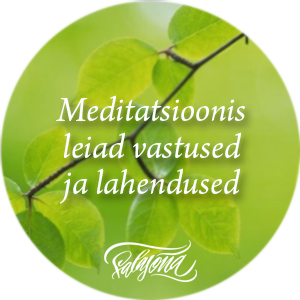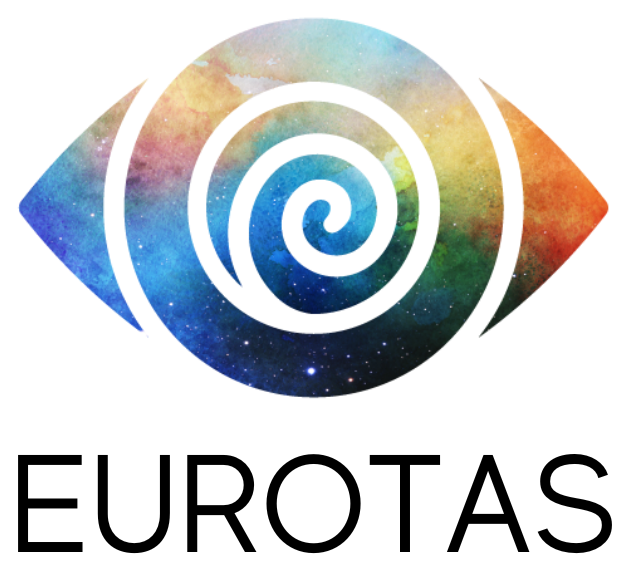Anu Hermlin
When the emotional pain is very deep, it may sometimes seem that working on yourself is not effective. After many years of facing your fears, working through your childhood pain, cleaning the darker basements of your subconsciousness, one day, you get a feeling that it has all been in vain. You can ask yourself, “Why have I done all this when I am now where I am – back to square one? I have done so much work, but I still feel the same pain in my soul. Does that mean there will be no end? I can never feel content again?” In terrible moments, you may even have suicidal thoughts. You don’t get these thoughts because you really want to get rid of life: you actually want to get rid of the pain, don’t you?
Yet you may still from time to time find yourself playing with the idea of what if… and you reason that your life won’t change anyway, you won’t be happy anyway, you won’t get anywhere anyway.
Comparison is the mother of inferiority.
At this point, I would like to ask you where exactly you should go? Of course, you have your dreams; we all have. And the pursuit of goals is a human, healthy need. However, you should look at yourself from the position of an observer for a moment to see if the goals you have set are realistic or if perhaps you are living in illusions? In the latter case, you are pursuing goals that are not achievable and therefore only cause frustration.
In today’s information age, we are all under social pressure. Just as we are affected by media manipulations to make us think and act in a certain way, we are affected by social media, which fuels the cult of success and beauty. Maybe you have fallen into this too and started comparing yourself to unrealistic standards without realising it? Suppose you are even a little concerned with how well people in the media and on social media seem to live. In that case, you are comparing yourself to others (others are smarter, better, wealthier, happier than I) and self-denigrating (I couldn’t do it, I don’t have these opportunities, I don’t look so good, I wouldn’t succeed, etc.)
This is not you? Do you feel like I was talking about primitive people you have nothing to do with? You move around in different company and you don’t even know which glossies are published in Estonia, not to mention that you would be interested in who is exhibited there? You have been on a path of self-development for a long time and you are spiritually developed, a spiritual person?
Don’t stop reading! I ask you again.
Are you sure you’ve never looked at an acquaintance’s post about their Bali yoga camp or an Indian ashram and felt a quiet, suppressed inner sigh (“Well, they have a lot more options!”)? Are you pretty sure you’ve never felt a bit uncomfortable reading about a friend’s accomplishments on a spiritual journey? Someone may have completed a long pilgrimage that you haven’t had enough willpower to do; someone may have been issued a certificate that you would also be happy to have; perhaps a third started a business that you haven’t dared to do? Have you felt a little sting?
The cult of success of spiritual people.
In our era of new age, the cult of success has also penetrated spheres we didn’t know to look from before. Even in the spiritual world, on the spiritual journey and in self-development, there is a social pressure to be successful, to move forward quickly and with great leaps. It also often puts people on a spiritual journey under pressure, artificially creating the need to achieve a perfect balance and abundant life right away! But is it a process that can be accelerated at will? Wouldn’t the state of equilibrium run away from us if we start to pursue it with force? If we assume that a sprint should bring us peace of mind, we push the peace of mind away from us.
By giving ourselves even one derogatory assessment because we still haven’t been able to create the same abundant life (cool business / incredible creation) as a friend, we are once again pushing the abundant life to a more distant future.
It makes sense, doesn’t it? But at the same time, people still get caught up in this.
You know that you should stop comparing. Is comparison the mother of inferiority or is inferiority the mother of comparison? If you didn’t have a feeling of inferiority in you, even a little, you wouldn’t compare yourself to anyone. Thus, a comparison can occur on the surface of existing inferiority. But it is also true that in order to transform the feeling of inferiority, it is very easy to approach it from the point of view of comparison. In other words – in terms of practical work, you could start noticing those moments when you feel the need to compare yourself with someone. If you manage to get this moment by the tail, you have the opportunity to look behind this need. This way, you will find your feeling of inferiority, and you have a chance to let go of it gradually.
A happy life is not for me, neither is living in illusions.
I will not be happy anyway, or “A happy life is not for me!” is the next trap you can get stuck in.
Even if you have finished comparing yourself to others, you may occasionally find yourself thinking that this pleasant zen-condition, which you believed was quite tangible, has not been achievable.
Now you should be more concrete with yourself and make it clear to yourself what you mean by a happy life. Is it living in a constant, ongoing feeling of happiness? If so, does this really seem to be a realistic goal?
Can you imagine what your daily life could look like living in constant happiness?
How do you feel when your children get into a serious quarrel and try to bring justice with a tin bucket and a broomstick? Happy because you have kids? Let’s try again. You are very grateful for your beloved children, for sure. And if someone asked if you were happy to have these wonderful family members, you would say yes without hesitation. But do you really feel bliss and happiness when a tin bucket has hit the other forehead through a toddler’s little hand?
We should realize that happiness cannot be a permanent, lasting feeling, part of the daily routine. Instead, we could seek the peace of mind, balance, a sense of presence.
My life won’t change anyway.
Life changes all the time. Everything that lives also moves and is changing. Life is a movement. So by claiming that your life will not change, you are wrong. It is a misinterpretation. The thing to which you’re referring is the fact that your life isn’t changing (quickly) enough.
Have you finished comparing yourself to others and truly realised what you are looking for (contentment and balance, not constant happiness)?
Have you now set realistic goals for yourself?
Only when you no longer live in illusions, but instead set realistic goals for yourself, it makes sense to address the question of whether or not some deeper subconscious patterns really hinder your transformation.
These can be:
- perfectionism (I should be much further by now)
- victim energy (I don’t think the general rules apply for me and the usual methods don’t work, I’m completely hopeless)
- different fears (what does it really mean when I go through a real transformation?)
- various beliefs
Awaken self-compassion.
Since it is known that all solutions begin with an awareness of the problem, that really facing the problem is already courageous, this can lead to an individual healing process, you ask yourself. “Has the fact that I have faced my pain and become aware of it somehow made that pain more tolerable?” You may have doubts that conscious pain may not be different from unconscious pain because it is so difficult to compare how you felt ten years ago and how you feel today when the same word ‘pain’ is still used to describe it.
But how do you know if you have made progress?
Maybe you shouldn’t focus on finding evidence of your progress? The reality is that no one can reassure you how much you have changed. No one else will know; not even the person who shares days, years, a life with you. They may notice differences, but they may not associate them with your transformation.
And if you doubt your own development, you have to deal with your self-belief.
You do not believe in yourself or your development only if you do not love yourself!
Stop denigrating yourself for once!
By beating yourself up for missing a meditation (or raw salad or five Tibetans), you will neither achieve better contact with yourself nor come closer to healing. Instead, learn to forgive yourself and treat yourself with compassion!
Yes, with compassion!
Find the energy of compassion within you and direct it back to yourself! And keep doing it every day!
When you begin to believe that you deserve compassion, then one day you might look in the mirror and say, “I love you!”
And then a miracle happens; you realise that this is the most crucial step that you have ever taken in your development path!
It is healing.
Source: https://www.vaimukoda.ee/blog/













0 Comments